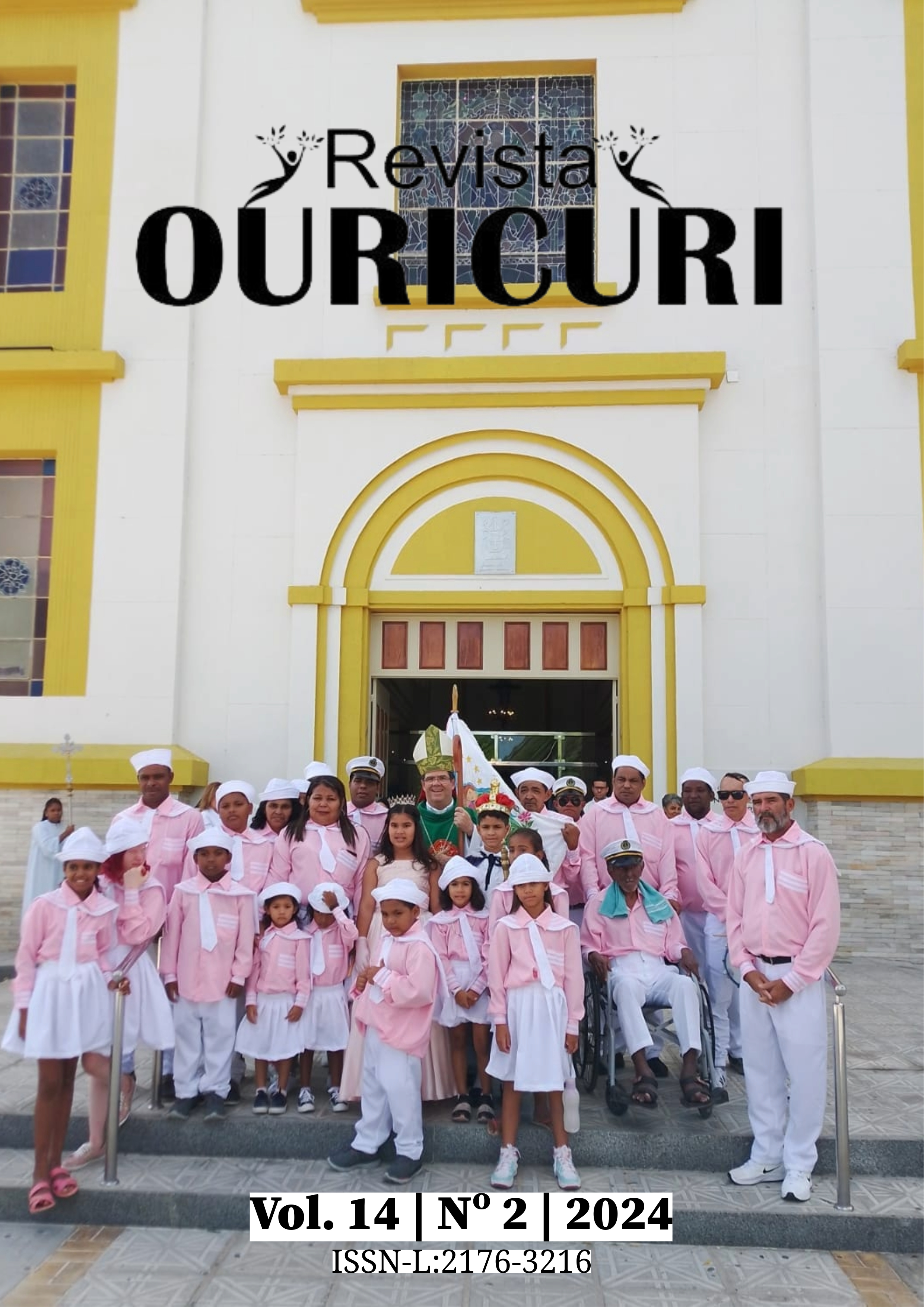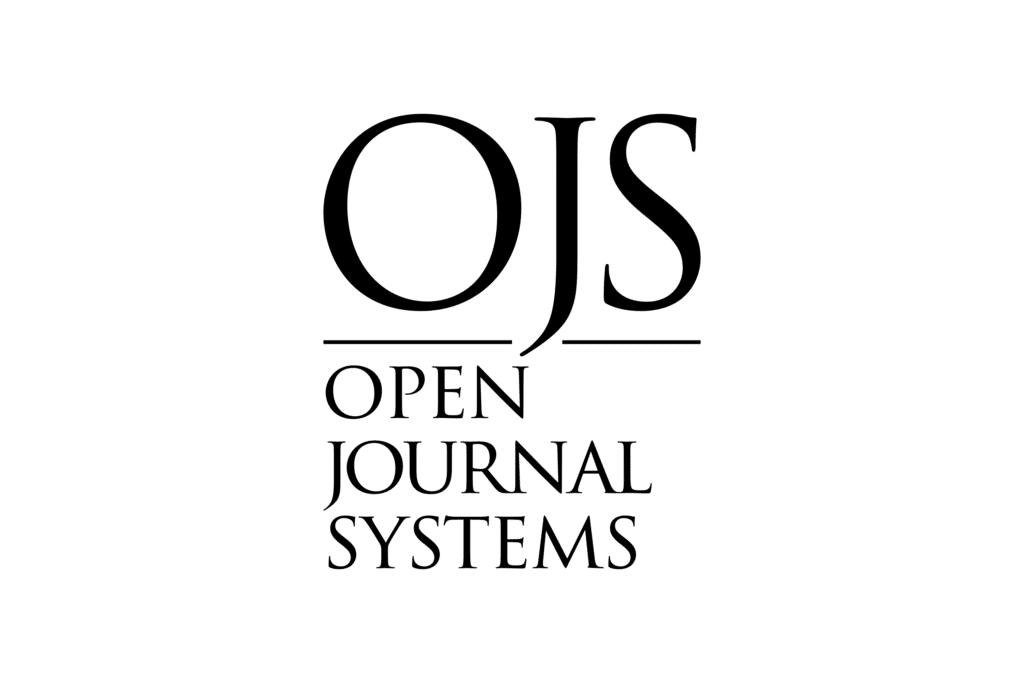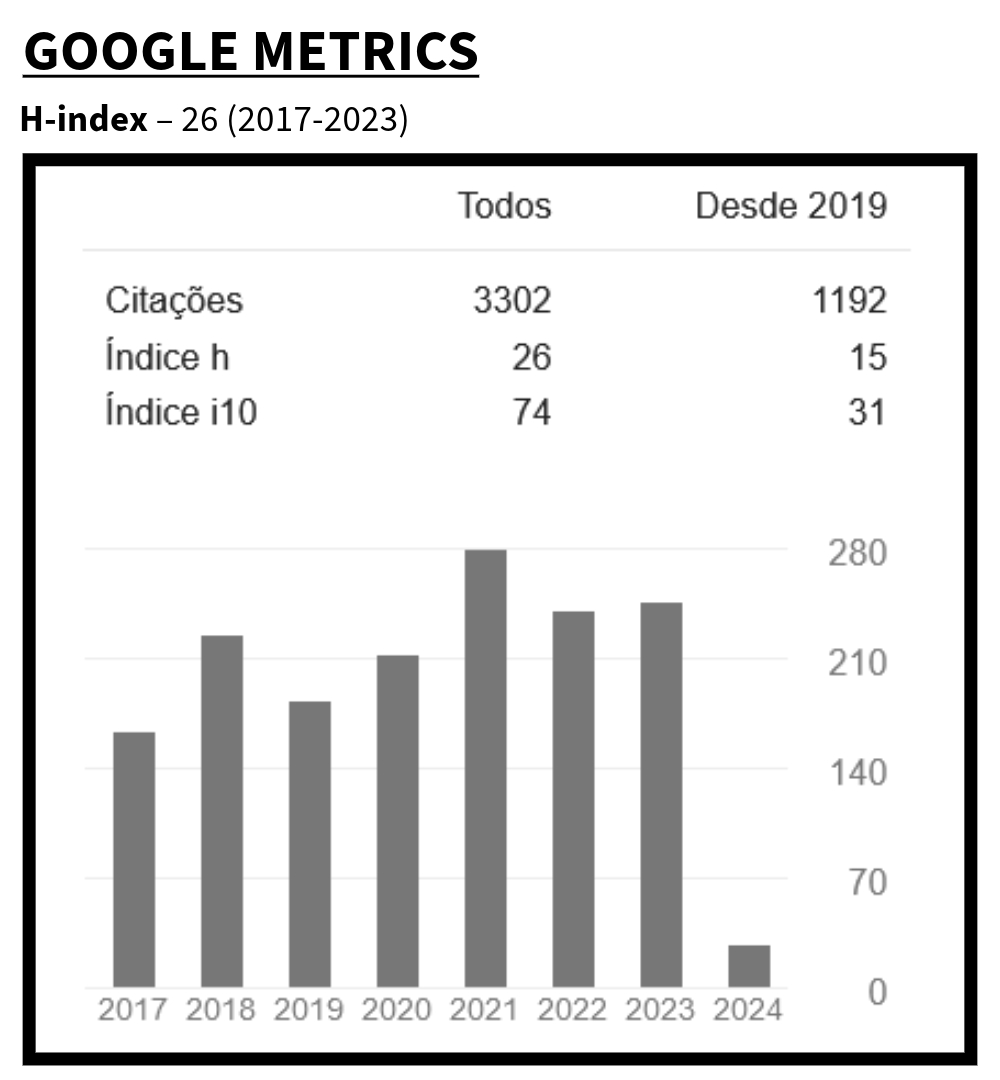The thermal discomfort index and its projection for future scenarios in the municipality of Tucuruí – PA
DOI:
https://doi.org/10.59360/ouricuri.vol14.i2.a19525Keywords:
Climatologia, Mudanças Climáticas, Temperatura, Umidade, Amazônia.Abstract
With climate change happening on the planet, such as the rise in the average temperature of the earth, where the Amazon is notoriously one of the regions most susceptible to feeling impacts. Meteorological conditions, such as air temperature and humidity, play a crucial role in thermal discomfort. The thermal discomfort index (TDI) quantifies the levels of stress that a person experiences in the face of these adverse conditions. The objective of this work was to analyze the variability of temperature and relative humidity, calculate thermal discomfort indices in the municipality of Tucuruí (PA) and its projections for future scenarios. Based on observed temperature and humidity data (1980 to 2022), and future scenarios RCP 4.5 and RCP 8.5, the variability of climatological variables was analyzed. In the last stage, the IDT of the observed data and future scenarios was calculated. From the results, it was possible to observe that meteorological variables correlate, acting inversely, with significant drops in humidity rates over the years. It was found that the municipality of Tucuruí is constantly in the mild discomfort zone, and that meteorological variables greatly influence the IDT, especially during drought in the municipality. In RCP 8.5, despite starting in the comfort zone, from the middle of the century it will present rates of mild discomfort to discomfort due to heating.
Downloads
References
Alves, Elis Dener Lima et al. A temperatura do ar e umidade absoluta em cidade de pequeno porte: características espaciais e temporais. Acta Scientiarum. Human and Social Sciences, v. 38, n. 2, p. 219-231, 2016.
Amaripadath, Deepak et al. Design optimization of an assisted living facility to improve summer thermal comfort in warming climates. Journal of Building Engineering, p. 109814, 2024.
Arsad, Fadly Syah et al. Assessment of indoor thermal comfort temperature and related behavioural adaptations: a systematic review. Environmental Science and Pollution Research, v. 30, n. 29, p. 73137-73149, 2023.
Artaxo, Paulo. Mudanças climáticas e o Brasil. Revista USP, n. 103, p. 8-12, 2014.
Barbosa, Paulo Henrique Dias et al. Variabilidade de elementos meteorológicos e de Conforto Térmico em diferentes ambientes na Amazônia Brasileira. Revista Brasileira de Climatologia. Ano 11, v. 17, p. 98-118, 2015.
Casagrande, Enrico et al. Water balance partitioning for ecosystem service assessment. A case study in the Amazon. Ecological Indicators, v. 121, p. 107155, 2021.
Costa, Carlos Eduardo Aguiar de Souza; Blanco, Claudio José Cavalcante; DE Oliveira-Júnior, José Francisco. IDF curves for future climate scenarios in a locality of the Tapajós Basin, Amazon, Brazil. Journal of Water and Climate Change, v. 11, n. 3, p. 760-770, 2020.
Costa, Carlos Eduardo Aguiar de Souza; Blanco, Claudio José Cavalcante; DE Oliveira-Júnior, José Francisco. Impact of climate change in the flow regimes of the Upper and Middle Amazon River. Climatic Change, v. 166, n. 3-4, p. 45, 2021.
Castro, Edna Maria Ramos de et al. Estudo socioeconômico dos municípios da região de Tucuruí, Pará (Paper 258). Papers do NAEA, v. 1, n. 1, 2010.
Farias, André Luis Assunção de; Do Carmo Magno, Thaissa Souza; Freitas, Marcus Robert Ferreira. Gestão ambiental e impactos socioambientais na Amazônia: o (des) envolvimento a partir da UHE Tucuruí, PA. P2P E INOVAÇÃO, v. 7, p. 34-55, 2021.
Ferreira, Danielle Barros; Lima, Edna Cristina; LUZ, Mário Sérgio Freitas da. Variação espacial da temperatura e precipitação e sua associação aos eventos El Niño e La Niña em Tucuruí-PA. In: XII Congresso Brasileiro de Meteorologia. Soc. Bras. de Meteorologia/SBMET, 2002.
Ferreira, Rute Costa et al. Tendência dos índices de instabilidade na américa do sul. Ciência e Natura, v. 38, n. 1, p. 164-169, 2016.
Fisch, Gilberto F.; JANUÁRIO, Mauro; SENNA, Renato C. Impacto ecológico em Tucuruí (PA): Climatologia. Acta Amazonica, v. 20, p. 49–60, 1990.
Fisch, Gilberto; MARENGO, José A.; Nobre, Carlos A. Clima da amazônia. Climanálise-Boletim de Monitoramento e Análise Climática-Edição Comemorativa, v. 10, 1996.
Hartabela, Dadang; Dewancker, Bart Julien; Koerniawan, Mochamad Donny. A Relationship between Micro-Meteorological and Personal Variables of Outdoor Thermal Comfort: A Case Study in Kitakyushu, Japan. Sustainability, v. 13, n. 24, p. 13634, 2021.
IBGE. Instituto Brasileiro de Geografia e Estatísticas. Cidades, Panorama Tucuruí. Disponível em: < https://cidades.ibge.gov.br/brasil/pa/tucurui/panorama>. Acesso em 20 de outubro de 2023.
INPE. Instituto Nacional de Pesquisas Espaciais. Projeções Climáticas. Disponível em: <http://www.ccst.inpe.br/projetos/projecoes-climaticas-aplicacoes/>. Acesso em: 01 de novembro de 2023.
Pedreira Junior, Altemar Lopes et al. Temperatura, umidade relativa do ar e índice de desconforto térmico (IDT) no município de Boca do Acre-Amazonas. EDUCAmazônia, v. 20, n. 1, p. 75-86, 2018.
Peeters, Robin et al. Energy performance and climate dependency of technologies for fresh water production from atmospheric water vapour. Environmental Science: Water Research & Technology, v. 6, n. 8, p. 2016-2034, 2020.
Lima, Vinícius Santini de. EtaModelCC: um pacote R para visualização de dados de mudanças climáticas geradas pelo CPTEC/INPE. 2019.
Manavvi, S.; Rajasekar, E. Evaluating outdoor thermal comfort in urban open spaces in a humid subtropical climate: Chandigarh, India. Building and Environment, v. 209, p. 108659, 2022.
Monteiro, José Carlos Ramos et al. Descrição da temperatura e umidade relativa do ar em distintas localidades da cidade de Manaus com diferentes geometrizações e espacialidades urbanas nos Bairros Do Parque Dez, Nova Cidade e Bairro Centro-Manaus/Am. Igapó, v. 10, n. 1, 2016.
Nobre, Carlos et al. Land-use and climate change risks in the Amazon and the need of a novel sustainable development paradigm. Proceedings of the National Academy of Sciences, v. 113, n. 39, p. 10759-10768, 2016.
Oliveira, Nathalia Capellini Carvalho. Cidade-empresa e controle da mão de obra na construção da usina hidrelétrica de Tucuruí (1974-1984). Revista Mundos do Trabalho, v. 12, p. 1-23, 2020.
Ren, Jianlin et al. A review on the impacts of urban heat islands on outdoor thermal comfort. Buildings, v. 13, n. 6, p. 1368, 2023.
Ribeiro, Pedro Leite; Navas, Carlos. A macrofisiologia e sua importância em estudos sobre mudanças climáticas. Revista da Biologia, v. 8, p. 1-4, 2018.
Ribeiro, Roberta Everllyn Pereira et al. Análise da tendência climática nas séries temporais de temperatura e precipitação de Tucuruí-Pará. Revista Brasileira de Geografia Física, v. 7, n. 5, p. 798-807, 2014.
Souza, Débora Moreira de; Nery, Jonas Teixeira. O conforto térmico na perspectiva da climatologia geográfica. Geografia (Londrina), v. 21, n. 2, p. 65-83, 2012.
Thom, Earl Crabill. The discomfort index. Weatherwise. 12,57–61, 1959.
Yan, Haiyan et al. The coupled effect of temperature, humidity, and air movement on human thermal response in hot–humid and hot–arid climates in summer in China. Building and Environment, v. 177, p. 106898, 2020.
Watanabe, Masahiro et al. Improved climate simulation by MIROC5: mean states, variability, and climate sensitivity. Journal of Climate, v. 23, n. 23, p. 6312-6335, 2010.
Published
How to Cite
Issue
Section
License
Copyright (c) 2024 Carlos Eduardo Aguiar de Souza Costa, Amanda Sena de Sá, Márcia Evellyn Portilho Cruz, Vanessa Conceição dos Santos, Laila Rover Santana

This work is licensed under a Creative Commons Attribution-NonCommercial 4.0 International License.
Authors who publish in this journal agree to the following terms:
a) Authors maintain copyright and grant the magazine the right of first publication, with the work simultaneously licensed under the Creative Commons Attribution License which allows sharing of the work with recognition of authorship and initial publication in this magazine.
b) Authors are authorized to enter into additional contracts separately, for non-exclusive distribution of the version of the work published in this journal (e.g., publishing in an institutional repository or as a book chapter), with recognition of authorship and initial publication in this journal.
c) Authors are allowed and encouraged to publish and distribute their work online (e.g. in institutional repositories or on their personal page) as this can increase the impact and citation of the published work (See The Effect of Open Access).













 B1 (2017-2020)
B1 (2017-2020)



















